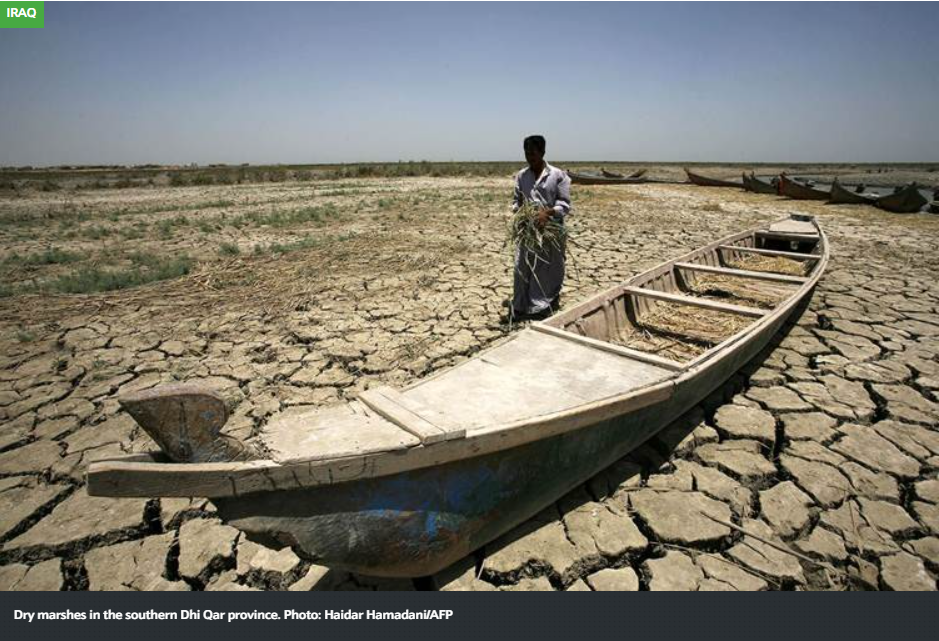
ERBIL, Kurdistan Region – Iraq is facing its worst water crisis in eight decades, as national reserves plummet to unprecedented lows, a senior water ministry official warned on Sunday.
Khaled Shamal, spokesperson for the Iraqi water ministry and director of the General Authority for Irrigation and Reclamation Projects, said the current water shortage surpasses that of 2024 and will force Iraq to significantly scale back its agricultural plans for the summer.
“At the start of the summer season, we should have at least 18 billion cubic meters of water. Today, we only have about 10 billion,” Shamal stated on the sidelines of the 5th Baghdad International Water Conference on Sunday.
“We have not seen reserves this low in 80 years.”
Iraq’s water crisis has been exacerbated by five consecutive years of drought, soaring temperatures, and the construction of upstream dams in neighboring Turkey and Iran. These dams have sharply reduced water inflows into Iraq, leaving the country with less than 40 percent of its entitled share from the Tigris and Euphrates rivers – Iraq’s primary water sources.
According to Shamal, the 2025 rainfall was sparse, and the annual snowmelt, another key source of river inflows, was unusually low. These conditions, he explained, have severely depleted strategic reserves and limited Iraq’s ability to support its agricultural sector.
To ensure drinking water supplies for its 46 million citizens, the Iraqi government says it has prioritized urban water needs over agricultural demands.
This summer, the agricultural plan will be “structural,” Shamal clarified, focusing on preserving the roots of existing plants and fruit-bearing trees rather than expanding cultivation.
“We will maintain only the productive green areas – approximately one and a half million dunams,” he said.
Last year, Iraqi farmers were allowed to cultivate around 2.5 million dunams of corn, rice, and orchards.
In a big to mitigate the crisis, Iraq has been urging farmers to adopt modern irrigation techniques to reduce water consumption. However, these efforts have proven insufficient to offset the impact of dwindling river flows and erratic rainfall.
During the 5th Baghdad International Water Conference, Iraqi Prime Minister Mohammed Shia’ Al-Sudani announced on Saturday a national initiative to protect the Tigris and Euphrates rivers from climate change and battle water scarcity. The push seeks to rally international support and increase diplomatic pressure on neighboring countries to uphold Iraq’s water rights.
According to Shamal, this initiative will promote bilateral talks with Turkey, Syria, and Iran while encouraging global cooperation to address the region’s escalating water challenges.
“This is a national security issue,” Shamal concluded. “Securing water for Iraq is essential for our survival, our agriculture, and our stability.”
The World Resources Institute has notably listed Iraq among the 25 countries facing extreme water stress, highlighting that it is utilizing over 80 percent of its available water supply and is at high risk of depletion in the event of any short-term drought.

